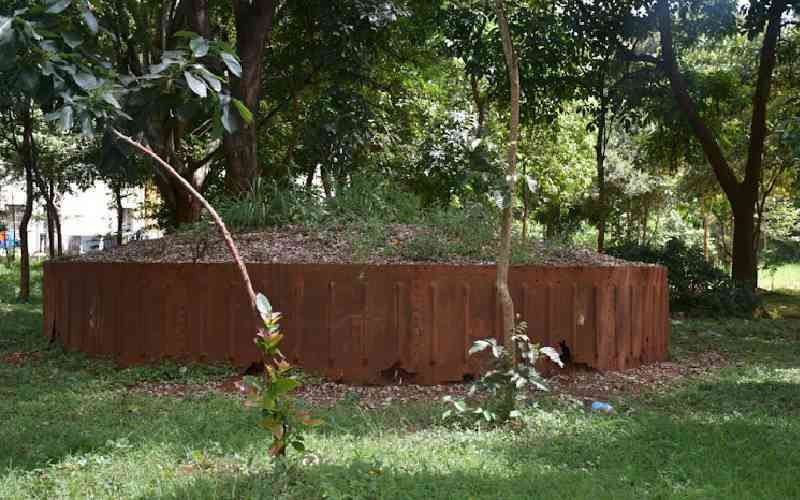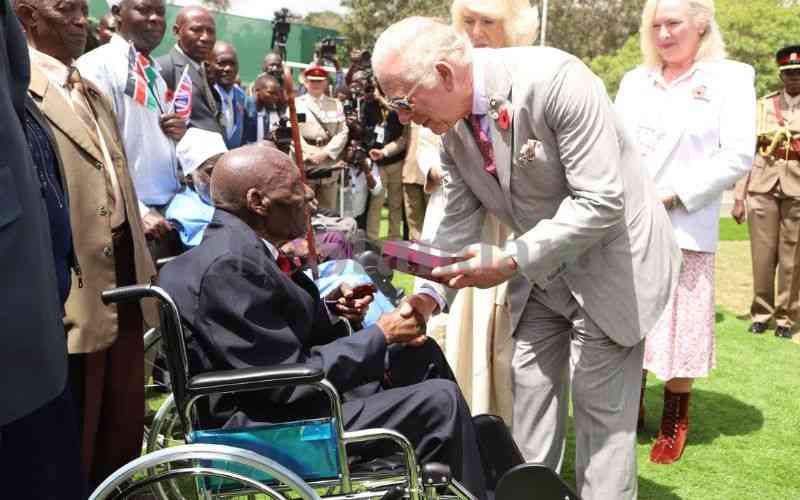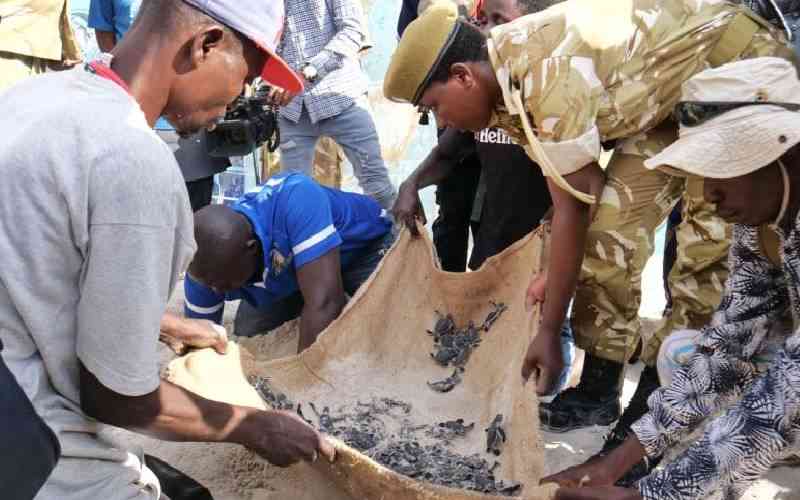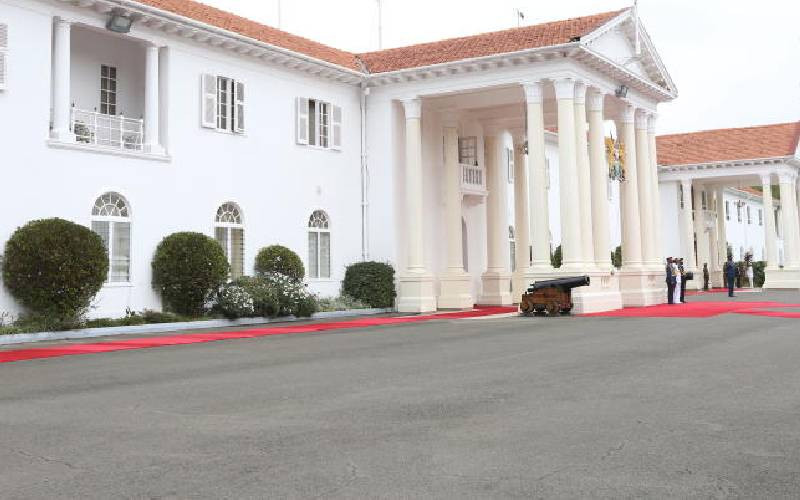By Pascal Mwandambo
When rain clouds gather and the winds blow intermittently, the raffia palms swing leisurely on the imposing rocky hills.
Sometimes when the skies are clear and sunrays pierce through the hilly escarpments, the mood is reversed but the awe-inspiring Taita Hills are unmoved, they remain standing tall like giants in a drunken stupor.
This is the scenic portrait of the skull caves and shrines of Taita. These abodes of the ancestors of the Wadawida are scattered in several rocky hills in the county as if to declare their place in history; as remnants of a rich culture although it is being gradually swept away by Christianity.
Some of these caves are found at Shomoto rock about five kilometres from Wundanyi town.
Skulls of heroes
“Traditionally when an elder died he was buried in a shallow grave and when the body began to decompose it was exhumed and the head decapitated, wrapped in banana leaves and taken to the caves by a seer and close relatives of the deceased,” explains Mzee Musamuli Lenjo, 80, a respected community elder and custodian of culture.
Mzee Lenjo says during war with aggressive neighbours, the Wadawida of yore usually stored skulls of heroes (mang’oni) who died in battle in the caves.
This was to serve as a permanent reminder of their valiant deeds, which were to be narrated to the younger generations.
“When a soldier died in battle, his close lieutenants chopped the head and carried it in a leather bag so that it could be preserved in the caves together with those of the other Taita ancestors,” says Lenjo.
After the skulls were well preserved in the caves, close relatives of the deceased would perform sacrifices at the caves at regular intervals to appease the ancestors and invite blessings to the family and clans as well as keep calamities at bay.
Powerful charms
“Other caves and rocks served as the revered fighi shrines where powerful charms were buried to ward off invaders and aggressive neighbours.
“Any invaders entering Taita land with ill motives would encounter powerful forces such as dangerous wild animals, swarms of bees, snakes or violent storms that drove them back,” narrates elder Mzee Kilambo Mkilo.
Lawyer Duncan Mwanyumba says the caves and shrines of Taita should be preserved and gazetted for posterity as they form a basis for future research on local culture.
Stay informed. Subscribe to our newsletter
“Taita culture is among the most intricate and unique in Africa and the footprints of our ancestors should not be erased from the annals of history,” says Mwanyumba.
Apart from being the hallmarks of the culture of the Wadawida, the picturesque and awe-inspiring Taita hills have continued to attract many tourists and visitors every year.
“The potential of cultural tourism has remained largely untapped. Too much effort has been on wildlife and hotel tourism while cultural tourism has received little attention,” says Taita Taveta County Council chairman Mr Eresmus Mwarabu.
Quite exciting
“My first visit to Taita hills was quite exciting. We were elated as we ascended the steep hills to Wundanyi, and at one point we felt as though we were driving right into the sky,” remarks British tourist Emma Tonsen.
She adds: “The scenery is stupendous; the cool climate and friendly people are just fantastic.”
Tonsel says the landscape provides an attractive scenery for movie shooting.
In fact, a couple of years ago, movie makers made inroads into then Taita Taveta District
Movies such as Sheena Queen of the Jungle and The Bush Trackers have exploited the rich scenery of Taita.
Unique flora and fauna
Researchers from all over the world have also been lured by the rich biodiversity of Taita forests which hold plant and animal species not found anywhere else in the world.
These include a unique snake locally known as sadu which was traditionally revered and was thought to be the custodian of local resources.
Taita forests especially Ngangao and Mwambirwa hold three endemic birds and three butterfly species.
Clivon Mwachola, a butterfly farmer at Shigharo Forest in Wundanyi says the rare birds and butterflies should be reared for local income through tourism instead of being exported to foreign countries since little benefits trickle back to the local communities.
Obviously, the Taita hills are more than just a revered shrine; they are likely to economically empower the Taita residents.
 The Standard Group Plc is a
multi-media organization with investments in media platforms spanning newspaper
print operations, television, radio broadcasting, digital and online services. The
Standard Group is recognized as a leading multi-media house in Kenya with a key
influence in matters of national and international interest.
The Standard Group Plc is a
multi-media organization with investments in media platforms spanning newspaper
print operations, television, radio broadcasting, digital and online services. The
Standard Group is recognized as a leading multi-media house in Kenya with a key
influence in matters of national and international interest.
 The Standard Group Plc is a
multi-media organization with investments in media platforms spanning newspaper
print operations, television, radio broadcasting, digital and online services. The
Standard Group is recognized as a leading multi-media house in Kenya with a key
influence in matters of national and international interest.
The Standard Group Plc is a
multi-media organization with investments in media platforms spanning newspaper
print operations, television, radio broadcasting, digital and online services. The
Standard Group is recognized as a leading multi-media house in Kenya with a key
influence in matters of national and international interest.









